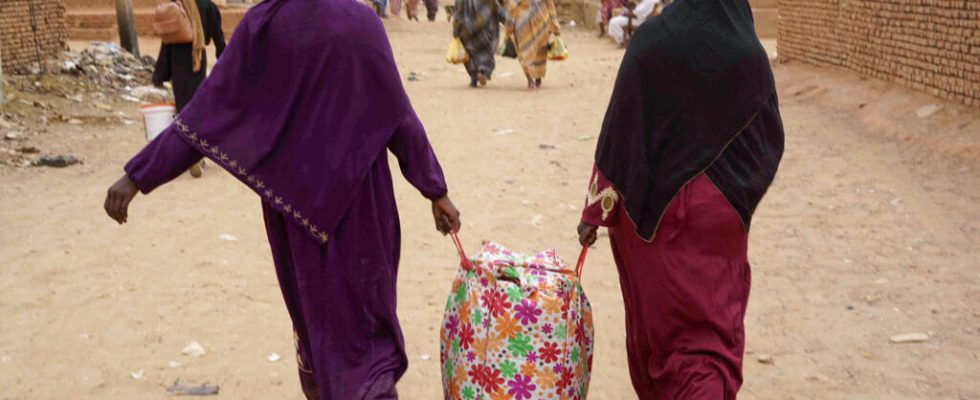In Sudan, paramilitaries at war with the army since April 15 announced on Tuesday that they had captured the town of Wad Madani, the capital of the state of al-Jazeera, located just 180 km from Khartoum. . Its capture by the RSF opens a new front and achieves a strategic gain which could allow them to control all of eastern Sudan. Interview with David Miliband, CEO of the IRC.
4 mins
In a statement, Mohamad Hamdane Daglo, who heads the Rapid Support Forces, announced that his forces had taken control of the army headquarters, the first infantry division, the police office, the headquarters of the government and the downtown hospital after a quick confrontation. Wad Madani had until then been spared from hostilities.
This city has become a city of refuge for tens of thousands of displaced people since the start of this conflict eight months ago. THE Sudan tops the list of twenty countries in the world where the humanitarian situation risks deteriorating in 2024, according to theNGO International Rescue Committee. In its new report, the group warns of the vulnerable situation of Sudanese civilians, victims of this conflict which has already caused more than 12,000 deaths, according to theUN.
RFI: Why is Sudan at the top of your ranking?
David Miliband : Sudan is the scene of intense fighting which endangers the civilian population. The poverty rate is very high: 25 million people depend on the humanitarian aid system to survive. The conflict has left around 1.6 million refugees displaced mainly within Chad and South Sudan. In the case of Chad, we are talking about 600,000 refugees and 400,000 for South Sudan. Migration pressure is therefore very strong.
In Sudan, the town of Wad Madani has become a refuge for thousands of displaced people. How do you manage all these people and do you worry that this humanitarian crisis will boil over?
There is concern that this massive population movement could spread to neighboring countries which themselves are already under pressure. A political process to end the war is underway in Jeddah, Saudi Arabia. But the problem is that some of the main players are not participating in these talks. There is therefore a long way to go before arriving at a viable political process.
How can humanitarian workers intervene in these conflict zones?
All belligerents must respect international humanitarian law. The French humanitarian strategy, which was presented today, and this is why I am in Paris, says good things about how the humanitarian aid sector should be reformed.
Should the sector be reformed to allow humanitarian workers to intervene in these conflict zones, regardless of the attitude of the warring groups?
It is not so simple. The humanitarian aid sector works according to principles of impartiality. This means that we do not take sides with either the Sudanese government forces or the paramilitary forces. Given that conflict remains the main driver of the humanitarian crisis, it is not enough to make a wish and expect it to disappear. We depend on a political process and pressure on parties to conflict to respect the laws of war. Unfortunately, this has become increasingly rare. 90% of war victims today are civilians, not soldiers.
How can you ensure that a country like Sudan is no longer at the top of your ranking of the most dangerous countries for civilians?
I believe that humanitarian aid can reduce the number of deaths, but we need the political will to stop the massacres. The greatest hope for 2024 is therefore not only that there will be more palliative humanitarian aid, more funding, more reforms, but also that we recognize that the longer these problems persist, the more likely they are to cause damage not only in the countries where they start, but also beyond borders.
